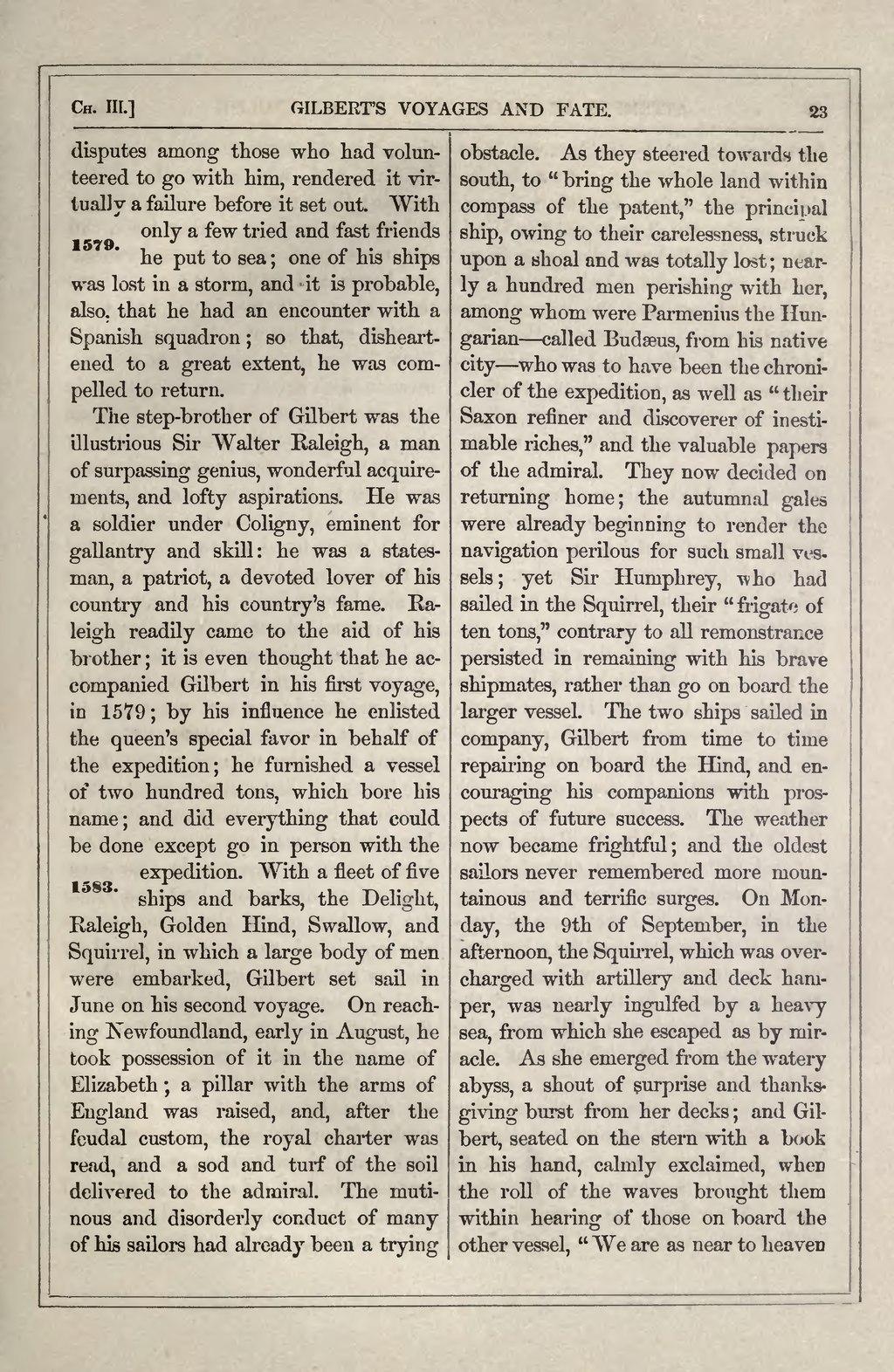disputes among those who had volunteered to go with him, rendered it virtually a failure before it set out. With only a few tried and fast friends he put to sea; one of his ships was lost in a storm, and 'it is probable, also, that he had an encounter with a Spanish squadron; so that, disheartened to a great extent, he was compelled to return.
The step-brother of Gilbert was the illustrious Sir Walter Raleigh, a man of surpassing genius, wonderful acquirements, and lofty aspirations. He was a soldier under Coligny, eminent for gallantry and skill: he was a statesman, a patriot, a devoted lover of his country and his country's fame. Raleigh readily came to the aid of his brother; it is even thought that he accompanied Gilbert in his first voyage, in 1579; by his influence he enlisted the queen's special favor in behalf of the expedition; he furnished a vessel of two hundred tons, which bore his name; and did everything that could be done except go in person with the expedition. With a fleet of five ships and barks, the Delight, Raleigh, Golden Hind, Swallow, and Squirrel, in which a large body of men were embarked, Gilbert set sail in June on his second voyage. On reaching Newfoundland, early in August, he took possession of it in the name of Elizabeth; a pillar with the arms of England was raised, and, after the feudal custom, the royal charter was read, and a sod and turf of the soil delivered to the admiral. The mutinous and disorderly conduct of many of his sailors had already been a trying obstacle. As they steered towards the south, to "bring the whole land within compass of the patent," the principal ship, owing to their carelessness, struck upon a shoal and was totally lost; nearly a hundred men perishing with her, among whom were Parmenius the Hungarian—called Budæus, from his native city—who was to have been the chronicler of the expedition, as well as "their Saxon refiner and discoverer of inestimable riches," and the valuable papers of the admiral. They now decided on returning home; the autumnal gales were already beginning to render the navigation perilous for such small vessels; yet Sir Humphrey, who had sailed in the Squirrel, their "frigate of ten tons," contrary to all remonstrance persisted in remaining with his brave shipmates, rather than go on board, the larger vessel. The two ships sailed in company, Gilbert from time to time repairing on board the Hind, and encouraging his companions with prospects of future success. The weather now became frightful; and the oldest sailors never remembered more mountainous and terrific surges. On Monday, the 9th of September, in the afternoon, the Squirrel, which was overcharged with artillery and deck hamper, was nearly ingulfed by a heavy sea, from which she escaped as by miracle. As she emerged from the watery abyss, a shout of surprise and thanksgiving burst from her decks; and Gilbert, seated on the stern with a book in his hand, calmly exclaimed, when the roll of the waves brought them within hearing of those on board the other vessel, "We are as near to heaven
